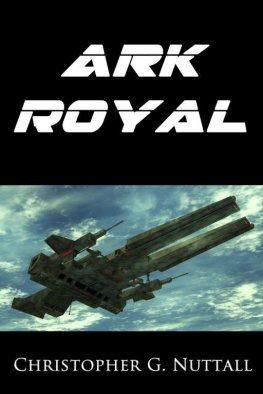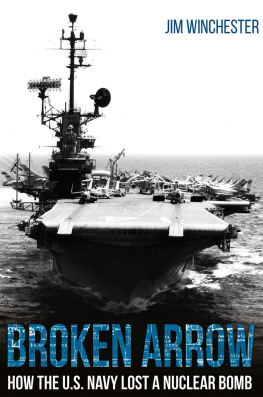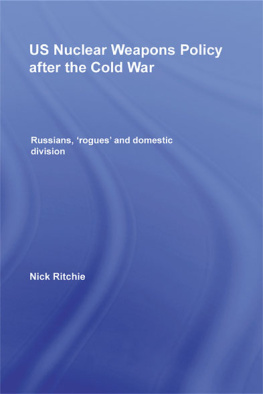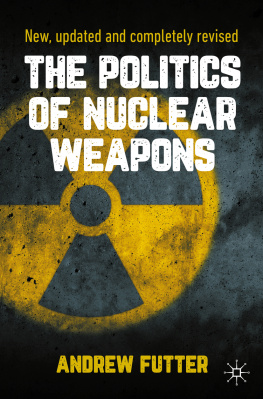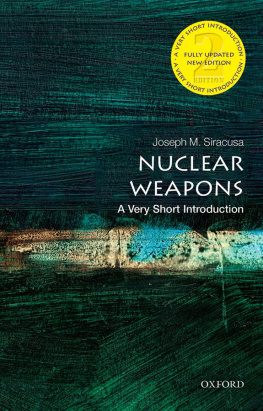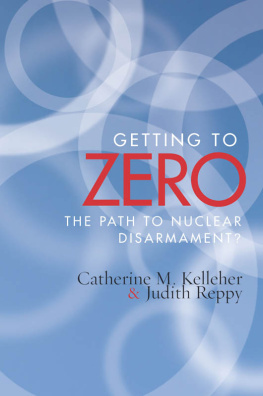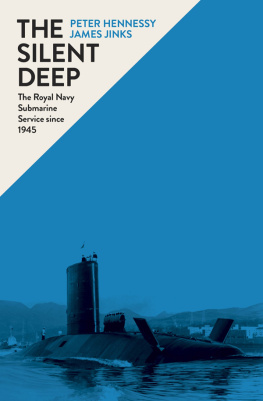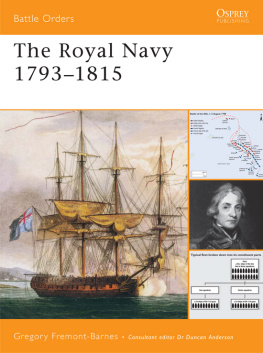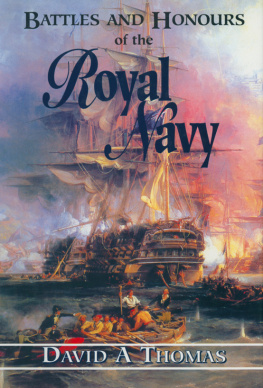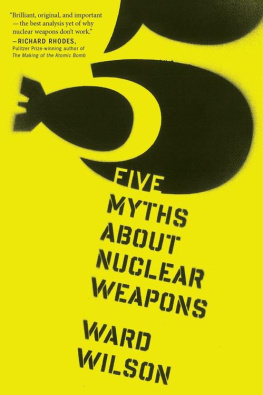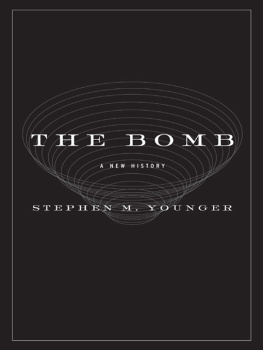Richard Moore - The Royal Navy and Nuclear Weapons
Here you can read online Richard Moore - The Royal Navy and Nuclear Weapons full text of the book (entire story) in english for free. Download pdf and epub, get meaning, cover and reviews about this ebook. year: 2015, publisher: Taylor & Francis, genre: History. Description of the work, (preface) as well as reviews are available. Best literature library LitArk.com created for fans of good reading and offers a wide selection of genres:
Romance novel
Science fiction
Adventure
Detective
Science
History
Home and family
Prose
Art
Politics
Computer
Non-fiction
Religion
Business
Children
Humor
Choose a favorite category and find really read worthwhile books. Enjoy immersion in the world of imagination, feel the emotions of the characters or learn something new for yourself, make an fascinating discovery.

- Book:The Royal Navy and Nuclear Weapons
- Author:
- Publisher:Taylor & Francis
- Genre:
- Year:2015
- Rating:4 / 5
- Favourites:Add to favourites
- Your mark:
- 80
- 1
- 2
- 3
- 4
- 5
The Royal Navy and Nuclear Weapons: summary, description and annotation
We offer to read an annotation, description, summary or preface (depends on what the author of the book "The Royal Navy and Nuclear Weapons" wrote himself). If you haven't found the necessary information about the book — write in the comments, we will try to find it.
The Royal Navy and Nuclear Weapons — read online for free the complete book (whole text) full work
Below is the text of the book, divided by pages. System saving the place of the last page read, allows you to conveniently read the book "The Royal Navy and Nuclear Weapons" online for free, without having to search again every time where you left off. Put a bookmark, and you can go to the page where you finished reading at any time.
Font size:
Interval:
Bookmark:

- Austro-Hungarian Naval Policy, 1904-1914
Milan N. Vego - Far-Flung Lines: Studies in Imperial Defence in Honour of Donald
Mackenzie Schurman
Edited by Keith Neilson and Greg Kennedy - Maritime Strategy and Continental Wars
Rear Admiral Raja Menon - The Royal Navy and German Naval Disarmament 1942-1947
Chris Madsen - Naval Strategy and Operations in Narrow Seas
Milan N. Vego - The Pen and Ink Sailor: Charles Middleton and the King's Navy, 1778-1813
John E. Talbott - The Italian Navy and Fascist Expansionism, 1935-40
Robert Mallett - The Merchant Marine in International Affairs, 1850-1950
Edited by Greg Kennedy - Naval Strategy in Northeast Asia: Geo-strategic Goals, Policies and Prospects
Duk-Ki Kim - Naval Policy and Strategy in the Mediterranean Sea: Past, Present and Future
Edited by John B. Hattendorf - Stalin's Ocean-going Fleet: Soviet Naval Strategy and Shipbuilding Programmes, 1935-1953
Jrgen Rohwer and Mikhail S. Monakov - Imperial Defence, 1868-1887
Donald Mackenzie Schurman; edited by John Beeler - Technology and Naval Combat in the Twentieth Century and Beyond
Edited by Phillips O'Brien - The Royal Navy and Nuclear Weapons
Richard Moore

FRANK CASS PUBLISHERS
2 Park Square, Milton Park, Abingdon, Oxon OX14 4RN
711 Third Avenue, New York, NY 10017, USA
The royal Navy and nuclear weapons. (Cass series. Naval
policy and history)
1. Great Britain. Royal Navy History 2. Nuclear weapons
Great Britain
I. title
359.8251190941
ISBN 13: 978-0-7146-5195-8 (hbk)
The Royal Navy and nuclear weapons / Richard Moore.
p. cm. (Cass seriesnaval policy and history, ISSN 1366-9478)
Includes bibliographical references and index.
ISBN 0-7146-5195-8 (cloth)
1. Great Britain. Royal NavyHistory20th century. 2. Nuclear
weaponsGreat Britain. 3. Naval strategyHistory20th century. 4.
Fleet ballistic missile weapons systemsGreat Britain. 5. Deterrence
(Strategy)History20th century. I. Title. II. Series.
UA657 .M66 2001
359.181709410904dc21
- ii
Font size:
Interval:
Bookmark:
Similar books «The Royal Navy and Nuclear Weapons»
Look at similar books to The Royal Navy and Nuclear Weapons. We have selected literature similar in name and meaning in the hope of providing readers with more options to find new, interesting, not yet read works.
Discussion, reviews of the book The Royal Navy and Nuclear Weapons and just readers' own opinions. Leave your comments, write what you think about the work, its meaning or the main characters. Specify what exactly you liked and what you didn't like, and why you think so.



